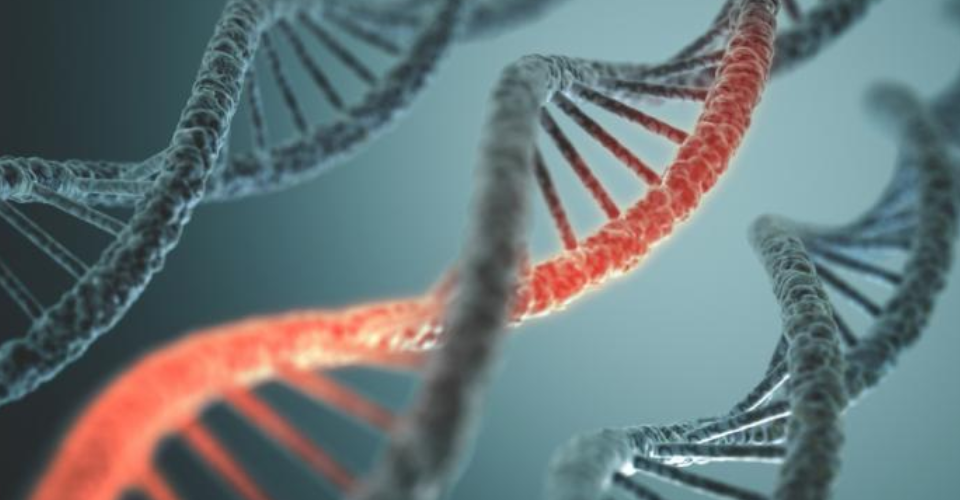New Study Uncovers Sex-Dependent Impacts of Ube3a Gene on Autism
A study that has been published in Science Advances has broken new grounds by showing a complex genetic mechanism that may explain sexual dimorphism or difference in autism. A higher dose of the Ube3a gene could have different effects pertaining to autistic behavior between males and females. Researchers obtained significant sex-specific results regarding brain connectivity and behavior through such an experiment on mice which had additional copies of this particular gene, thus contributing to a better understanding of why autism is biased towards males.
Understanding Autism and Its Gender Bias
Autism spectrum disorder (ASD) is a neurodevelopmental disease characterized by difficulties with social interaction, communication, and repetitive behaviors. The causes of autism are not well known but it is speculated that it arises from combinations of genetics, environment, and neurological factors. One remarkable thing about autism is its male bias where there are approximately four diagnosed boys for every one girl. Consequently, scientists have attempted to unravel some possible genetic and biological explanations for this gender imbalance.
Ube3a Gene as Possible Cause
One such genetic mechanism that may contribute to the maleness bias in autism is the Ube3a gene located on chromosome 15 involved in neurodevelopmental processes. This gene has various variants associated with numerous neurodevelopmental disorders including ASDs. However, very little attention has been paid on its involvement in sex-related mechanisms.
“Our research lab has been studying the genomic basis behind autism manifestation for years now especially focusing on brain circuit changes,” says Alessandro Gozzi who is also a senior scientist and Director of Functional Neuroimaging Laboratory at Italian Institute of Technology. “Our findings demonstrate very important sexually distinct impacts of Ube3a gene upon brain function.”
Methodology: Mice Models Under Investigation
The researchers used genetically modified mouse models to study the effects of higher Ube3a doses that mimic the human condition known as 15q duplication syndrome which is characterized by alterations in gene dosage, including duplications of Ube3a gene and thus autistic behaviors. The mice strains compared here were wild-type controls and Ube3a2X mice.
During resting-state fMRI (rsfMRI) which assesses functional connections between brain regions using male and female mice, they also underwent functional magnetic resonance imaging (fMRI). Structural MRI was employed to check for any anatomical changes in their brains.
Key Findings: Sex-Specific Brain Connectivity
The examination of fMRI results on male and female Ube3a2X mice showed remarkable differences in brain connectivity. Female mice with increased Ube3a dosage had reduced interconnectivity in several vital parts like hypothalamus and prefrontal cortex while males depicted more interconnectivity within same regions. These findings suggest that different neural connectivity may be associated with Ube3a gene dose between females and males that probably underlies sex-specific autism prevalence.
Behavioral Studies and Gene Expression Analysis
To evaluate autism-like behavior, researchers performed several tests such as open-field test for locomotion/anxiety, rotarod test for motor coordination or repetitive grooming scoring. In addition to this, social behaviors were assessed through habituation/dishabituation social interaction test as well as three-chamber social interaction test.
It was found that male Ube3a2X mice were far more repetitive than their wild-type counterparts, for example with excessive grooming. This increase in stereotyped behavior did not occur in female Ube3a2X mice. Motor coordination impairments were observed during the rotarod test in Ube3a2X mice but these were not seen to be sex specific. No significant difference existed between Ube3a2X mice and wild type controls in terms of social behaviors regardless of gender.
Sex-specific effects of increased Ube3a dosage were further investigated by gene expression analysis. In a sex-dependent manner, many autism-associated genes revealed dysregulated expression levels within the prefrontal cortex. These differences in gene expression mainly affected genes on the X-chromosome and those influenced by sex steroid hormones.
Implications and Future Directions
“Gozzi explained “The sex bias in autism, with boys being four times more affected than girls, can plausibly be explained by genetic mechanisms interacting with sex hormones.” “On top of this there is mounting evidence from various sources that autism is to a large extent a genetic disorder.”
What causes some individuals more likely to develop autism as compared to others remains unknown but it is believed to involve both genetic and environmental factors. However, Gozzi cautioned against such generalizations saying: “This is just one of possibly many genetic mechanisms leading to sex bias in autism. The challenge now is to understand which and how many other genetic and biological mechanisms contribute to this phenomenon.”
The study aims at investigating how brain function changes when people have certain genetic mutations that make them susceptible for developing autism.“” According to Gozzi,” This remains a major knowledge gap that we need to address”.
Caterina Montani, Luigi Balasco, Marco Pagani, Filomena Grazia Alvino, Noemi Barsotti, A. Elizabeth de Guzman, Alberto Galbusera, Alessia de Felice, Thomas K. Nickl-Jockschat, Sara Migliarini, Simona Casarosa, Pierre Lau, Lorenzo Mattioni, Massimo Pasqualetti, Giovanni Provenzano, Yuri Bozzi, Michael V. Lombardo and Alessandro Gozzi are authors of an article on “Sex-biasing influence of autism-associated Ube3a gene overdosage at connectomic, behavioral, and transcriptomic levels”.




Leave a Reply
You must be logged in to post a comment.